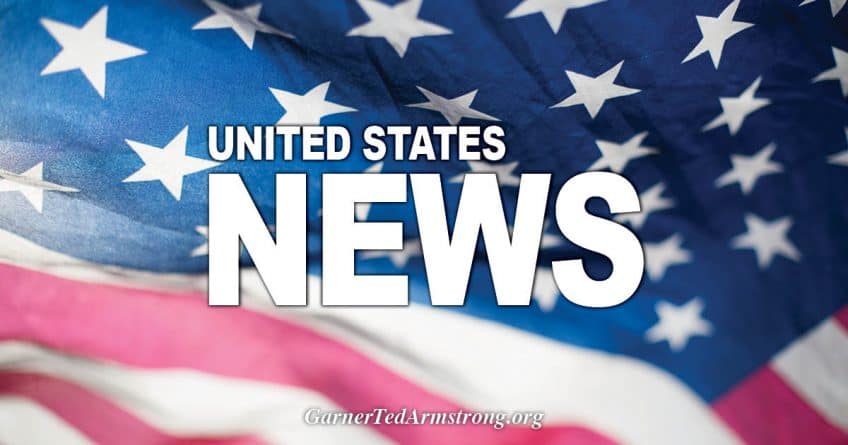President Trump will arrive in Brussels on Tuesday night with an eye toward pushing allied members of the North Atlantic Treaty Organization (NATO) to boost their defense budgets.
Despite Trump’s push, the heads-of-state confab risks being overshadowed by growing tensions between the U.S. president and European allies, Trump’s policies outside of NATO and his summit with Russian President Vladimir Putin, which is scheduled to take place days later.
U.S. ambassador to NATO Kay Bailey Hutchison told reporters last week that the theme of this year’s summit will be “strength and unity.” And while NATO’s secretary-general noted that the alliance has survived past disputes, he has acknowledged growing divisions among allies.
On the heels of a tense summit for the Group of Seven (G-7) industrialized nations last month, NATO watchers are hoping leaders put on a happy face in Brussels and get through the meeting without any major incidents.
Here are five things to watch at this week’s summit:
Do Trump and other leaders get along?
Allies largely played nice with Trump in the early days of his presidency, hoping to charm him into changing his position on issues such as the Paris climate agreement, tariffs and the Iran nuclear deal.
But Trump defied those efforts and has openly criticized other world leaders, leading to various disputes with the heads of global powers that have long relied on the U.S.
The G-7 appeared to mark a turning point, with Angela Merkel’s office releasing a photo of the German chancellor staring down a cross-armed Trump. And for days after the summit, as Trump prepared for his historic meeting with North Korea’s Kim Jong Un, the president feuded with Canadian Prime Minister Justin Trudeau.
After Trudeau said Canada would retaliate against Trump’s “kind of insulting” tariffs, Trump called Trudeau “very dishonest and weak” in a tweet and said that the United States would not be signing the G-7’s joint communiqué because of “Justin’s false statements.”
Shortly after his initial volley against Trudeau and French President Emmanuel Macron on Twitter amid the rolling trade disputes, Trump insisted during a news conference that relations between the U.S. and allied nations was never better, stating, “The level of relationship is a 10. Angela [Merkel], Emmanuel [Macron], Justin [Trudeau]. I would say the relationship is a 10.”
Merkel has drawn particular rancor from Trump, with him tweeting last month that “the people of Germany are turning against their leadership.” And at a campaign rally in Montana last week, Trump also hinted he has told Merkel the U.S. might change its military posture if Germany doesn’t spend more on defense.
“I said, you know, Angela, I can’t guarantee it, but we’re protecting you, and it means a lot more to you than protecting us because I don’t know how much protection we get by protecting you,” Trump said.
What happens on defense spending?
During Trump’s riff at the rally in Montana on Thursday night where he called out Merkel, Trump also labeled the United States “schmucks” for how much it spends compared to allies.
“I’m going to tell NATO, you got to start paying your bills. The United States is not going to take care of everything,” Trump said.
“We are the schmucks that are paying for the whole thing,” he added later.
Greater burden sharing is a refrain that Trump has sounded since his 2016 campaign. But he’s upped the pressure recently, sending letters to Merkel, Trudeau and other NATO leaders suggesting the possibility of a change in U.S. military posture if they don’t increase their defense spending.
Just eight of NATO’s 29 members meet or are expected to meet this year the alliance’s goal of spending 2 percent of their gross domestic product on defense: the United States, United Kingdom, Greece, Poland, Latvia, Estonia, Romania and Lithuania. The goal was set at the 2014 Wales summit, where allies agreed to meet the target by 2024.
Despite growing animosity between Trump and other NATO leaders, experts are expecting allies to continue a four-year trend of upward spending because allies have realized they need to spend more independently of the U.S.
“The Europeans are starting to recognize that they may have to think about what it may look like without the United States there for them,” said James Goldgeier, a professor of international relations at American University.
Will counterterrorism be a focus?
During the presidential campaign, Trump railed against NATO as “obsolete” for what he saw as a lack of focus on counterterrorism.
NATO supporters pushed back on that, highlighting that the only time allies have invoked the mutual defense pact known as Article 5 was after the Sept. 11, 2001, terrorist attacks on the United States.
Last year’s NATO heads-of-state meeting took place days after a terrorist attack in Manchester, England, putting a spotlight on the counterterrorism part of the agenda. At the meeting, NATO officially joined the coalition battling the Islamic State in Iraq and Syria (ISIS), a largely symbolic move that had been in the works for years but took on added importance amid Trump’s criticisms.
This year, Hutchison told reporters that counterterrorism will again be a priority for Trump at the summit.
In line with that, allies are expected to officially launch NATO’s bigger training mission in Iraq to help stabilize the country post-ISIS.
Hutchinson also said Trump will continue to make the case for allies to extend their commitment to Afghanistan, following his announcement of a new strategy last summer that is based on conditions on the ground instead of timelines.
Is Putin the elephant in the room?
Last month’s G-7 in Canada was marred by Trump’s statement on the way there that Russia should be readmitted to the group. Russia was kicked out in 2014 because of its annexation of Crimea, a move Western nations maintain was illegal.
Now, days after Trump meets with NATO leaders, he will head to Helsinki, Finland, for a summit with Putin. That summit is expected to kick off with a one-on-one meeting between Trump and Putin.
NATO was founded as a buttress against the Soviet Union and has shifted its focus back to Russia after its incursion in Ukraine. In the call with reporters, Hutchison said that NATO’s “strengthened deterrence and defense” is needed in light of the “the malign activities of Russia.”
But allies are nervous about Trump being in a room alone with Putin and what concessions he might make in an effort to forge a deal, such as whether he will recognize Russia’s claim over Crimea. Trump has left the door open to doing so, saying “we’re going to have to see.”
Allies are also worried about Trump unilaterally scuttling military exercises in Europe. Trump decided to cancel joint military exercises with South Korea during his summit with Kim last month. In doing so, Trump labeled the exercises “provocative,” an argument Putin has made against NATO exercises in Eastern Europe.
Do non-NATO issues spoil the mood?
While allies are rankled about Trump’s comments on spending and military posture, much of the strain in U.S. relations with allies has come from issues technically outside the scope of NATO.
That includes Trump’s 25 percent tariffs on imported steel and 10 percent tariffs on imported aluminum from the European Union and Canada, as well as Trump’s decision to withdraw from the Iran nuclear agreement and Paris climate accord against allies’ wishes.
Ahead of the NATO defense minister’s meeting last month, NATO Secretary-General Jens Stoltenberg said those represent “serious disagreements” among allies. He also warned in a Guardian op-ed weeks later that “nowhere is it written in stone that the transatlantic bond will always thrive.”
But he’s also said NATO can continue with its “core tasks” in spite of the divisions.
“We have to remember that we have seen differences before, all the way back to the 1950s where NATO allies disagreed on the Suez crisis or when France decided to leave the command structure in the 1960s or the Iraq War in 2003,” Stoltenberg said.
“So it’s nothing new that there are difference between NATO allies, and what we have seen again and again is that we have been able to unite around NATO’s core task to protect and defend each other despite those difference.”
Source: http://thehill.com/homenews/administration/395882-5-things-to-watch-as-trump-heads-to-nato-summit
[Disclaimer]






